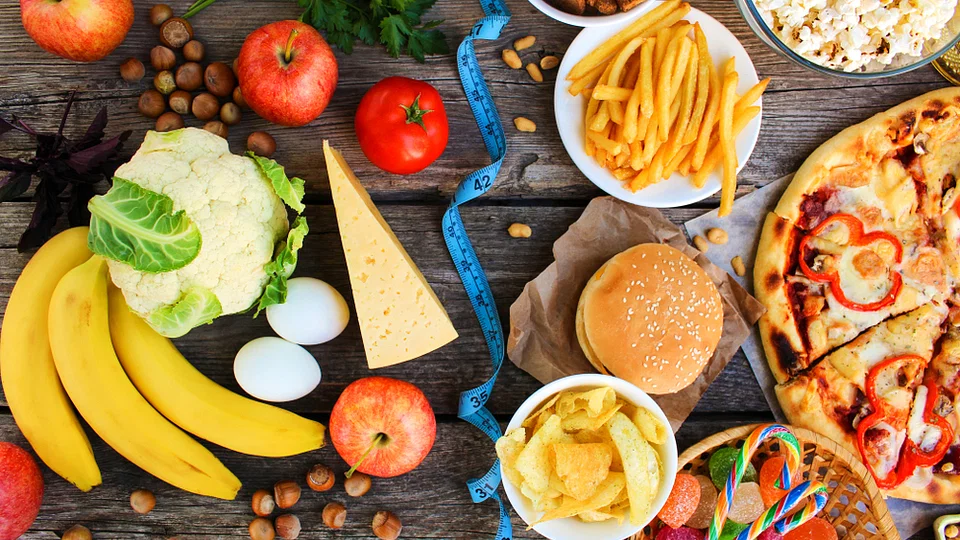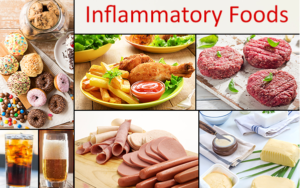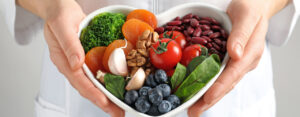
Here’s a cold, hard fact. Your diet can either contribute to inflammation or reduce it.
If you follow The Pain Free For Life Blog, you probably know that inflammation is the root cause of disease. Don’t get us wrong; all inflammation isn’t harmful. It’s your body’s natural response to injury or infection. But it’s also linked to stress, environmental toxins, EMFs, and poor diet. You can reduce inflammation and keep pain at bay by making simple changes.
In this blog, we’ll cover inflammation foods to avoid and what to eat instead. This is just a preview of what you will learn in The Hache Protocol Reset program, which kicks off on March 6th. Keep an eye on your inbox for more information!
Inflammation Foods To Avoid

To combat inflammation, it’s essential first to understand which foods to avoid. However, it’s equally important to go easy on yourself and use intuitive eating as a guide.
Restricting yourself too much can negatively affect your overall health and well-being. This is why it’s important to approach eating with a balanced mindset. Intuitive eating is a great way to achieve this. It encourages you to listen to your body’s signals of hunger and fullness and choose foods that energize and satisfy you.
This way of eating can help you establish a healthy and sustainable relationship with food. For instance, you may realize that the sugar rush you get from a soda is not energy but rather a quick spike in blood sugar followed by a crash. By listening to your body’s signals, you can make informed decisions about what foods to consume and how they make you feel.
That being said, it’s important to talk with a doctor or licensed nutritionist for the best advice catered to your individual body. They can help you identify which foods may be triggering inflammation and provide guidance on how to adjust your diet.
Now onto the foods to avoid if inflammation is a concern (and it should be):
- Processed foods: These foods are high in refined sugars and unhealthy fats, which can contribute to inflammation. They also contain additives and preservatives that can irritate your digestive system. Not to mention all the chemicals!
- Sugary drinks: They can cause excessive Try a home-made electrolyte drink. Remember, hydration is key in microcurrent protocols!
- Red meat: Red meat is high in saturated fats, which can contribute to inflammation. It also contains iron which can increase oxidative stress in your body. Learn more in our blog, Red Meat, and Inflammation – The Shocking Connection.
- Fried foods: Fried foods are high in unhealthy fats and can contribute to inflammation. They are also typically high in calories and can contribute to weight gain.
- Dairy products: Dairy products can be inflammatory for some people, especially lactose intolerant. They can also be high in saturated fats. If you eat dairy, choose grass-fed raw milk as it contains more vitamins.
Foods That Reduce Inflammation

Now onto the foods that can actually help reduce inflammation!
- Fruits and vegetables: Fruits and vegetables are high in antioxidants, which can help reduce inflammation. They are also high in fiber, which can help promote healthy digestion. Read our blog, How Eating Right Can Reduce Pain for tips on shopping at your local farmer’s market and an anti-inflammatory grocery list!
- Whole grains: Whole grains are fiber-rich, promoting healthy digestion. They are also a good source of vitamins and minerals.
- Fish: Fish is high in omega-3 fatty acids, which can help reduce inflammation. Some good options include salmon, tuna, and sardines.
- Nuts and seeds: Nuts and seeds are high in healthy fats and can help reduce inflammation. Some good options include almonds, walnuts, and chia seeds. While most nuts and seeds are generally considered to have anti-inflammatory properties, some people may experience inflammation in response to certain types of nuts and seeds. For example, peanuts may cause inflammation in some individuals due to their high omega-6 content.
- Herbs and spices: Anti-Inflammatory Herbs and spices such as turmeric, ginger, clove, and garlic have properties and can help ease pain and inflammation in your body.
Snacks To Eat Instead
So, what can you snack on instead? Here are three crispy, crunchy snack recipes that are healthy and won’t trigger inflammation:
1.Baked Sweet Potato Chips
These crispy chips are a healthier alternative to traditional potato chips. Simply slice a sweet potato thinly, toss with olive oil and seasonings, and bake in the oven until crispy. You can enjoy them plain or with your favorite dip.
2. Roasted Chickpeas
Chickpeas are a great source of protein and fiber, making a delicious crispy snack when roasted. Simply toss canned chickpeas with olive oil and seasonings, then roast in the oven until crispy. You can experiment with different spice blends to find your favorite flavor.
3. Kale Chips
Kale chips are a great way to get your greens in and satisfy your craving for something crispy. Simply tear kale leaves into bite-sized pieces, toss with olive oil and seasonings, and bake in the oven until crispy. You can experiment with different herbs, such as garlic powder or nutritional yeast…whatever you like!
Eating For Pain Relief Is Possible
Eating for pain relief is possible and doesn’t have to be daunting. By incorporating healthy, anti-inflammatory snacks into your diet, you can actively manage your pain and improve your overall health. Remember that making small changes over time can have a significant impact, so keep going if you don’t see immediate results.
With a bit of patience and persistence, you can achieve your goal of living a more pain-free life. Don’t wait to start feeling better. Start making changes today and take the first step towards a healthier, happier you!
Sources Cited:
Clove Extract Inhibits Tumor Growth and Promotes Cell Cycle Arrest and Apoptosis – PMC (nih.gov)

